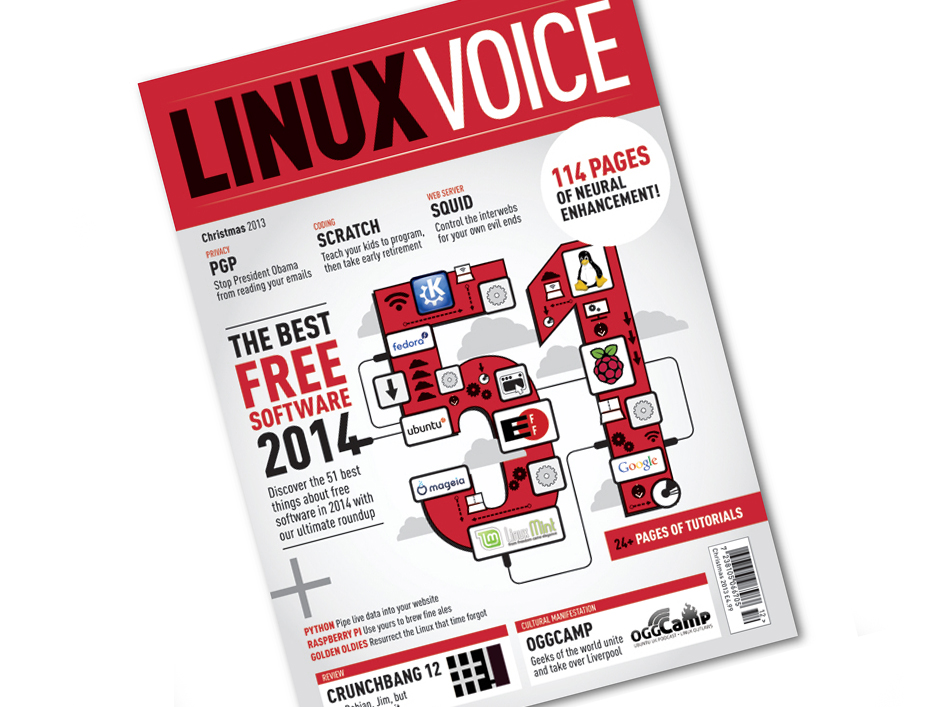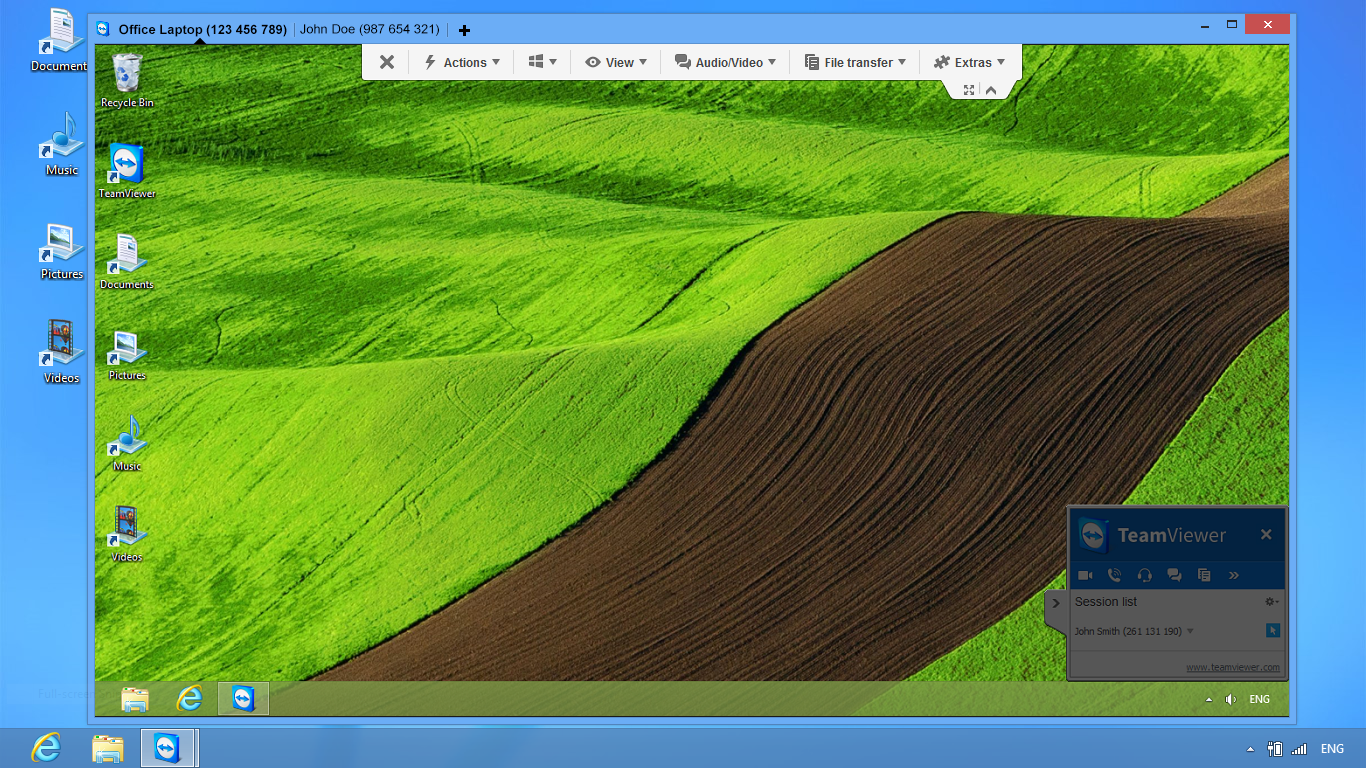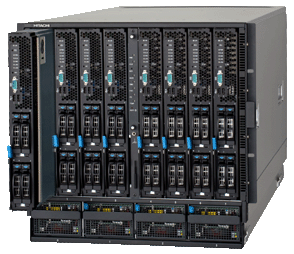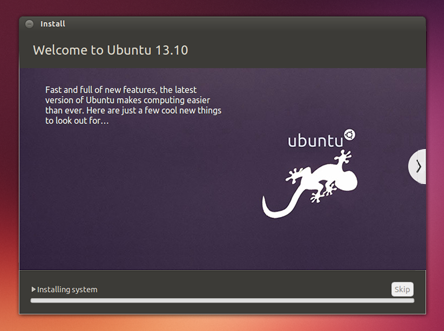
openSUSE 13.1 is here!
When it comes to Linux, I am very flaky. You see, I tend to never settle on a specific distro. While I always seem to end up on Fedora, I do tend to cheat. Yes, I am monogamous for the most part, but I can be found canoodling with Mint, Netrunner and openSUSE from time to time. The latter operating system is well-known for being rock-solid and well-supported. My wandering eye is always keeping tabs on the chameleon-logo distribution and today, there is big news.
"Dear contributors, friends and fans: The release is here! Eight months of planning, packaging, adding features, fixing issues, testing and fixing more issues has brought you the best that Free and Open Source has to offer, with our Green touch: Stable and Awesome", says Jos Poortvliet, community manager at SUSE.

Linux Format employees jump ship to form new magazine
While I love Linux, quality magazines about the kernel are few and far between. Over the years, my favorite has been Linux Format. I was attracted to the magazine by the quality articles and interesting content. However, the price of the magazine was particularly high in the USA, which often deterred my purchase (it is printed in the UK). After all, Linux is free but the magazine cost about $13/month at Barnes and Noble -- a tough sell. Not to mention, with the explosion of tablets, reading paper magazines feels a bit outdated (I still enjoy a hard-copy of Reader's Digest on my toilet tank though).
Apparently, it is not all roses at Linux Format as many of the employees have jumped ship due to creative differences and are trying to form a new magazine called Linux Voice. Of course, to get the project off the ground, the former-employees have turned to crowd-funding to turn their dream into a reality. The question becomes, is there a need for another magazine?

Fedora Linux 20 Heisenbug Beta available now
Fedora recently celebrated a 10th birthday, but the Linux distribution is not done reaching milestones. Today, Red Hat announces that Fedora is launching the beta version of the upcoming 20th version of the popular operating system, dubbed "Heisenbug".
"Linux enthusiasts are encouraged to download the beta release of Fedora 20, take it for a test drive and help identify items that may need attention before Fedora 20 is generally available. With the beta release, the software is feature complete but may have some bugs. Real-world testing and reports from users are vital to help identify any new or undiscovered bugs so that they can be addressed before wider distribution", says The Fedora Project Team.

Red Hat OpenShift PaaS now half-price and coming to 14 new countries
When an enterprise is looking to utilize a Platform as a Service (PaaS), there are many options. However, one of the more popular options that emerged in 2011 is Red Hat's OpenShift (the enterprise-class public Silver tier launched in June 2013). Amazingly, the user base has grown 259-percent, while the application count grew by 322-percent year-over-year -- a remarkable feat to say the least.
Today, Red Hat announces that it is not content with this growth, as the company looks to take it even further. "Red Hat is expanding Silver tier availability to 14 new Eurozone countries, including Greece, Poland, Bulgaria, Romania, Czech Republic, Hungary, Slovakia, Croatia, Slovenia, Lithuania, Estonia, Latvia, Cyprus and Malta. With this expansion, Red Hat’s world-class technical support and additional platform resources is available for developers and application providers in more than 30 countries", says Red Hat Inc.

Canonical tries to stop fan website using Ubuntu name and logo
Canonical, the team behind Ubuntu, finds itself the subject of criticism after contacting an Ubuntu related website and asking that the domain name be changed. Fix Ubuntu was created by Micah Lee to provide Ubuntu users with instructions about how to disable the web component of the desktop search tool. Lee was emailed by Canonical to request that he not only stop using the word "Ubuntu" in the domain name, but also refrained from using the logo.
The reason? Canonical's email suggests that the name and use of logo could cause confusion among Ubuntu users:

Happy 10th birthday, Fedora Linux!
People celebrate birthdays every year but the celebrations have expanded beyond humans. A search of YouTube reveals people baking birthday cakes and having celebrations for their pets. However, birthdays can be celebrated for anything, including Linux distributions.
Today, The Fedora Project (which is owned by Red Hat Inc.) celebrates 10 years of bringing open-source joy to the Linux Community. It is hard to believe that the operating system choice of the controversial Linus Torvalds is now 10 years old. That's like...a really long time in internet-years.

TeamViewer 9 Beta improves security, adds new business and user-friendly features
Today, TeamViewer announces a new beta version of its popular remote control software for Windows, Mac and Linux PCs. The latest release, named TeamViewer 9 Beta, introduces new features aimed at businesses, developers and end-users as well as security improvements.
The most noteworthy security addition in TeamViewer 9 Beta is two-factor authentication. It allows users to add an extra layer of protection to their accounts by using security codes, that can be sent to their mobile devices and, alternatively, generated by dedicated mobile apps. On Macs, TeamViewer 9 also adds the option to increase the password strength in QuickSupport.

Red Hat Enterprise Linux and Hitachi partner to break a record
There are many records available to be broken -- worlds tallest man, biggest hamburger or loudest crowd, to name a few. However, in the technology sector, there are records to break too; namely benchmarks. A benchmark is a way to test performance of both hardware and software. Red Hat announces that in a partnership with Hitachi, they too have broken a record -- the largest TPC-H database benchmark ever published.
"As a testament to Red Hat's continued innovation, the Red Hat Enterprise Linux team is pleased to announce that longtime Red Hat partner Hitachi, a leading global social innovation company with headquarters in Tokyo, has chosen Red Hat Enterprise Linux 6 for the largest TPC-H database benchmark ever published at a scale factor of 100 Terabytes (100,000 Gigabytes)", says Red Hat.

Canonical releases Ubuntu 13.10 Saucy Salamander for desktops and smartphones
In the world of Linux, Ubuntu serves as a gateway for many. You see, the popular Linux distribution is very easy to install and use, so it makes an ideal first distro. While some users may choose to stick with the 12.04 Long Term Support version (which is supported until 2017), other users will prefer to have the latest and greatest.
Today, Canonical releases the freshest stable version of its operating system, Ubuntu 13.10 Saucy Salamander, which has 9 months of support. While this is big news on its own, the bigger news is that it is available for both desktops and smartphones at the same time.

Red Hat Enterprise Linux 6.5 beta available now
Red Hat has been very busy lately. It was only a week ago that the company updated the previous version of its Enterprise Linux, 5.10. Today, rather than look backward, the company is looking forward and announces Red Hat Enterprise Linux 6.5 beta.
"We are pleased to announce the beta release of Red Hat Enterprise Linux 6.5. To keep pace with the demand for enterprise-class infrastructure, the newest version of the leading Linux platform extends its scalability and manageability to aid in the build-out and control of large, complex IT environments. For example, Red Hat Enterprise Linux 6.5 will be designed to simplify the operation of mission-critical SAP applications by automating the optimal configuration of common SAP deployments", says the company.

Yorba updates Shotwell and Geary -- essential Linux programs
Linux offers much quality software. From Gimp, for photo and image manipulation, to Rhythmbox, for music, a user can easily achieve a positive software experience. However, once a program becomes largely adopted, it can get stale -- developers may rest on their laurels.
When developer Yorba came on the scene in 2009 with the popular Shotwell (photo management) and Geary (email client), it was a breath of fresh air. Not only are the programs functional, they are attractive and receive steady updates. Yesterday, Geary announced updates to both of these programs.

XMir gets axed as default display server on Ubuntu 13.10
To say Canonical's Mir has been controversial is putting it lightly. After all, it is designed to usurp X Server as the typical display server on Linux (with compatible video cards). To make the transition easier, the company developed XMir -- a way to support X server-designed applications until they can be updated. However, many members of the Linux community are backing the alternative X Server successor, Wayland.
Things got ugly in August when Intel abruptly pulled XMir support from its xorg display driver, saying only "we do not condone or support Canonical in the course of action they have chosen, and will not carry XMir patches upstream". Canonical employee Michael Hall replied by saying "I've said it before, I'll say it again. You will not make your open source project better by pulling another open source project down".

Red Hat Enterprise Linux 5.10 available now
As a Fedora user and fan, I keep an interest in Red Hat Enterprise Linux (RHEL). You see, Red Hat owns Fedora which many people consider a testing-ground for RHEL. Today, the company announces a new update to the fifth version of its commercial-focused Linux distribution.
Red Hat announces "the release of Red Hat Enterprise Linux 5.10, the latest minor release of the mature Red Hat Enterprise Linux 5 Platform. With an emphasis on providing greater stability for critical applications, Red Hat Enterprise Linux 5.10 offers enhanced features for reliability and security, including an updated version of OpenSCAP".

The top 5 problems with Linux
I have been using Linux for many years. I consider myself well-versed in the open-source kernel and its associated operating systems. When I first started using Linux distributions, the community dreamed of a day when it would become the dominant force in computing.
Well, arguably, the time is now. You see, Android is now the most popular mobile operating system and ChromeOS is making big strides in education -- both operating systems use the Linux kernel. Also, Unix-like operating systems power 66 percent of the web (47 percent of which is Linux). However, Linux is not perfect and is still trailing on the desktop to Microsoft. Below are what I view as the top five problems with Linux.

Steam Controller -- a potential PlayStation 4 and Xbox One competitor
The video game controller has evolved over the years. However, from the iconic NES and going all the way to the soon-to-be-released PlayStation 4 and Xbox One, they are basically the same; directional pad on the left and buttons on the right. Sure, the number of buttons has increased, and there are now analog thumb-sticks, but overall, the concept hasn't changed -- until now.
Today, Valve announces that it is revolutionizing the game controller with its innovative Steam Controller. This controller is designed to accompany its new Steam Machine hardware and SteamOS Linux distro. Clearly, the company has its sights set not only on your living room, but competing with Sony and Microsoft. Yes, the company is using Linux and a custom-designed controller to compete with PlayStation 4 and Xbox One.
